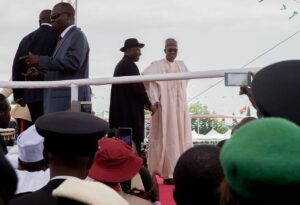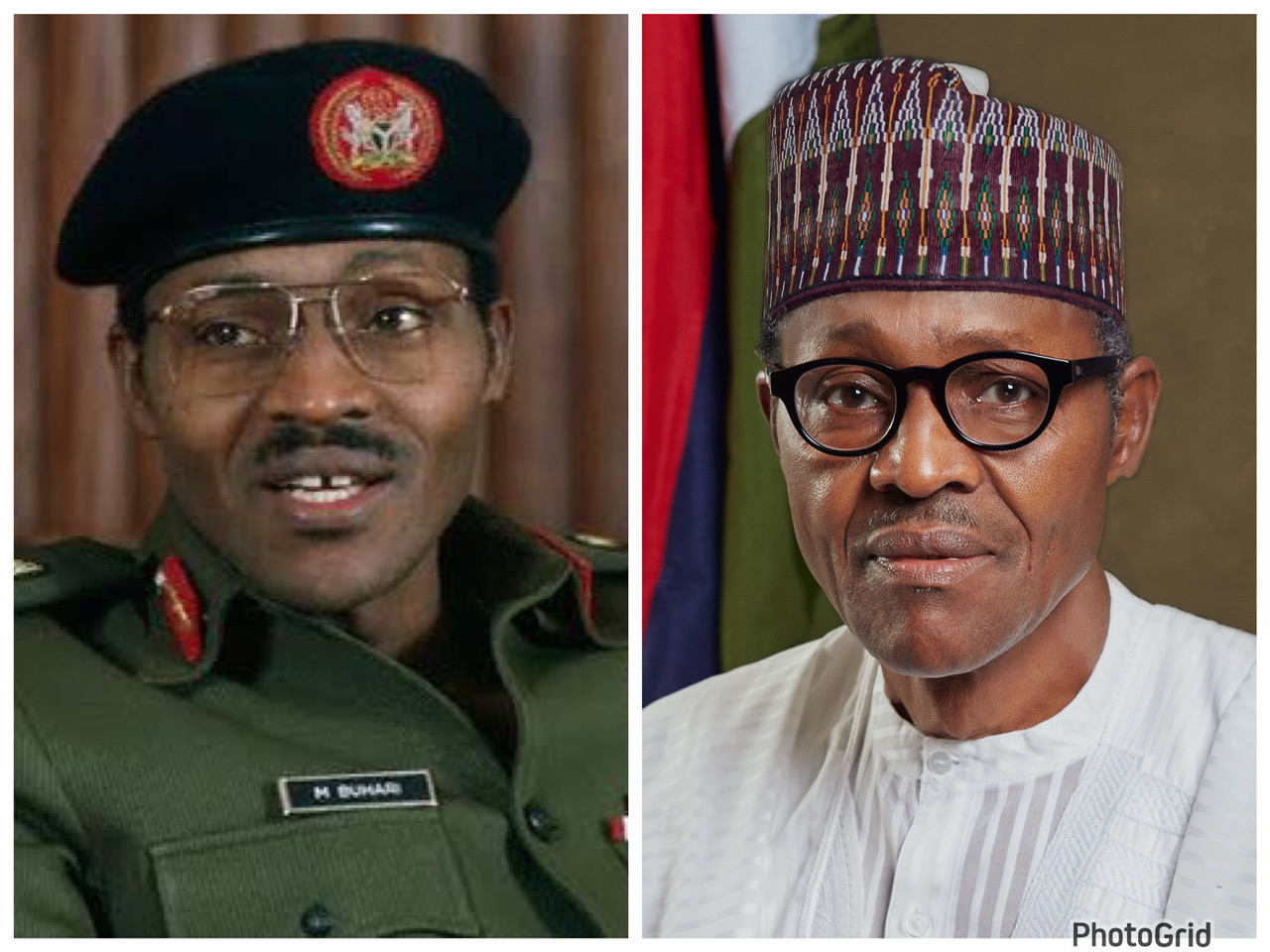By Mustapha Salisu
Muhammadu Buhari was born on December 17, 1942, in Daura, Katsina State, Northern Nigeria, the youngest among his father’s 23 children. His father passed away when Buhari was around four years old.
He received primary education in Daura and Mai’adua, followed by secondary schooling in Katsina, where he earned his West African School Certificate in 1961 .
Military Career
In 1962, Buhari joined the Nigerian Army, attending officer cadet training in Kaduna and the Mons Officer Cadet School in England. He rose through the ranks, serving in leadership roles including Commander in the Nigerian Civil War, Military Governor of North Eastern (Borno) State (1975–1976), and Federal Commissioner for Petroleum Resources under the Olusegun Obasanjo regime (1976–1978) . He also studied at institutions in India and the U.S., including the U.S. Army War College.
First Time in Power (1983–1985)

On December 31, 1983, Buhari led a military coup overthrowing President Shehu Shagari. He served as Nigeria’s head of state until August 1985. His regime was known for strict anti‑corruption measures and a moral campaign called the “War Against Indiscipline,” although it also restricted civil and press liberties .
Return to Civilian Politics (2003–2011)
After a period of political detachment, Buhari contested for the presidency in 2003, 2007, and 2011 under various platforms (ANPP and CPC), but was unsuccessful each time .
Democratic Presidency (2015–2023)

In December 2014, Buhari was chosen as the All Progressives Congress (APC) flagbearer and defeated incumbent Goodluck Jonathan in 2015, marking the first democratic turnover in Nigeria’s history. He was re-elected in 2019 with about 56% of the vote .
During his two civilian terms, Buhari prioritized anti‑corruption, launched the Treasury Single Account (TSA), pursued economic and security reforms (notably against Boko Haram), initiated social programs, and enforced austerity measures due to falling oil prices.
His tenure was mixed with some commending his discipline and integrity, while critics pointed to authoritarian methods, continued unrest, economic difficulties, health-related travel, and the #EndSARS protests.
Personal Life & Legacy
Buhari was married to Safinatu Yusuf (1971–1988) and later to Aisha Halilu (1989– ). He had ten children in total. Awarded honors including GCFR, DSM, and Nigeria’s Global Seal of Integrity, he was respected for his incorruptible image and patriotism but also criticized for economic mismanagement and political rigidity.
Passing & Final Years
After leaving office in May 2023, Buhari continued to face health challenges. He died on July 13, 2025, in London at the age of 82, where he had been under medical care.



